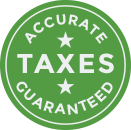How should a church handle donation of stock?
Handling the donation of stock for a church involves several important steps to ensure compliance, proper valuation, and acknowledgment. Here’s a comprehensive guide: Establish a Brokerage Account Open an Account: The church must establish a brokerage account in its name to receive and manage stock donations. Choose a Broker: Consider using a discount broker (e.g.,…
Should I Be Afraid to File a Tax Extension
If the looming April 15 tax deadline has you stressed, take a deep breath—you have time and options. Every year, many clergy rush to file by the deadline, often missing key deductions, making costly errors, or settling for a hurried filing experience. However, here’s the truth: filing a tax extension can be a strategic advantage,…
What is Social Security Allowance
Crafting compensation packages for church pastors is a process distinctly different from setting salaries and benefits in the for-profit sector. What is Social Security Allowance? A Social Security allowance is an additional payment made by churches to clergy to help cover their Social Security tax burden. This allowance is often referred to as a SECA…
How to file an extension
Filing a tax extension is a straightforward process that gives you until October 15th to submit your tax return. Here are the steps to follow: Choose Your Method You can file an extension in three main ways: Online Payment: Pay any estimated tax due online and select the option to file for an extension. This…
How to define honoraria income
Honoraria income for clergy refers to payments received for services where a set fee is not legally or traditionally required. These services often include weddings, funerals, baptisms, and guest speaking engagements. Here are some key points to understand: Definition and Nature Honorarium: A voluntary payment given for services that custom or propriety forbids a price…
The Windfall Elimination Provision (WEP)
The Windfall Elimination Provision (WEP) The Windfall Elimination Provision (WEP) reduction has been effective since it was first enacted in 1983. However, it’s important to note that recent legislation has repealed the WEP. The Social Security Fairness Act, signed into law on January 5, 2025, ends the WEP effective December 2023. The Windfall Elimination Provision…
2025 Standard Mileage Rates
The standard mileage rate for transportation or travel expenses for 2025 is 70 cents per mile, up from 67 cents in 2024 for all miles related to your ministry or business. The standard mileage rate for charitable use is 14 cents per mile. The standard mileage rate for medical care or as part of a…
Charitable Contribution Substantiation Guidelines
To substantiate charitable contributions, taxpayers must adhere to specific requirements based on the type and amount of the contribution. Here are the detailed substantiation requirements: General Requirements for All Contributions Cash Contributions: Cancelled Check: A cancelled check can serve as proof. Receipt from Donee: A receipt showing the name of the donee, the date, and…
Defining a minister’s tax home related to travel deductions?
The IRS defines a taxpayer’s “tax home” for travel deductions under IRC § 162(a) as the taxpayer’s regular or principal place of business. If the taxpayer has no regular or principal place of business, the tax home is considered the taxpayer’s regular place of abode in a real and substantial sense. This definition is crucial for determining…
Understanding Clergy Dual Tax Status
Clergy are defined as dual status because they are treated differently for various tax purposes under the Internal Revenue Code (IRC) and Treasury Regulations. Specifically, clergy members are considered self-employed for Social Security and Medicare taxes under the Self-Employment Contributions Act (SECA). Still, they can be regarded as employees for income tax purposes. This dual…






